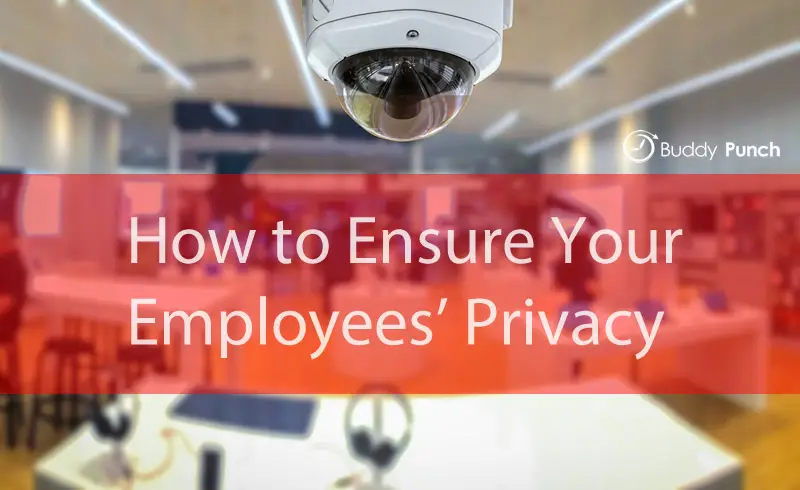How to Ensure Your Employees’ Privacy

Improving the workplace is something that’s most employers are concerned with – and for good reason!
Advancing your company, maximizing efficiency, increasing productivity, and keeping things running smoothly are all important for any company’s continued success. For this reason, many companies rely on analytics, data collection, and tracking software to gather valuable information on the team; allowing them to see what they’re doing, and how they’re spending their time.
While there are many undeniable benefits to monitoring your workforce, the downside to electronic surveillance and data collection mean that infringing on employees’ privacy is easier than ever. This, of course, raises the question: how can an employer’s need for information be balanced with an employee’s right to privacy?
In most states, employees have a right to privacy in the workplace. This extends to their personal possessions, storage lockers, private mail, and in many cases, private phone calls as well. However, when it comes to email and internet usage –and using the employer’s computer system, these rights to privacy are limited by an employer’s right to monitor business operations.
As a business owner, it’s important to strike a balance between gathering the data you need to make informed business decisions, and treading on an employee’s right to privacy. Here’s a look at a few ways that you can ensure that your employees’ privacy is taken seriously at your company.
Be Open
When it comes to implementing electronic surveillance systems, it’s important that you are open with your employees. Employees should always be made aware of what is being monitored, and how the data will be used. Informing your team what you are monitoring –and why, will help them to feel more comfortable with the system. Whenever possible, try to share the results of an analysis with your employees who are affected. Showing them the results can build trust, and helps to keep them up-to-date on what’s being tracked, and why.
Secure Databases
It’s also important to ensure that your databases are encrypted and secure, and that all data transfers are secure as well. Often, systems have gaps that can lead to data breaches and a subsequent loss of trust, or even potential lawsuits.
Address Their Concerns
It’s always beneficial to hold routine meetings where employees can ask questions or raise any concerns that they may have. If they have questions about their privacy or issues with the systems that are in place it’s important to take their concerns seriously. Always answer any questions that they have, and work to identify solutions for any issues that they may be having.
Respect Employee’s Data
The employee-employer relationship is built on mutual respect. As an employer, it’s important to respect your employees and their right to privacy. While you need access to some data in order to run your company, it’s important to ensure that you only gather data that’s relevant and necessary for business decisions.
Use Data for Its Intended Purpose
When it comes to data collection, it’s important to ensure that the data that’s collected for one purpose isn’t then used for another. Employers should only collect personal information that’s necessary for its stated purpose, and ensure that they collect it by fair and lawful means. It’s also important to inform your team what personal information you are collecting, why you are collecting it, and what you will be doing with it.
Avoid Monitoring Personal Phone Calls
The Electronics Communications Privacy Act (ECPA) places limitations on an employer’s right to monitor employees’ phone calls at work. Under this Act, employers may not monitor an employee’s personal phone calls, even those made from telephones at work. Phone calls can only be monitored if an employee is aware of the call being monitored, and consents to it. On the other hand, though, if an email system is used at a company, then the employer owns it and is allowed to review its contents.
Technology can benefit your company, when used correctly. But stepping over the line and using data for something other than workplace improvement can be an infringement of your employees’ privacy, and it’s not worth taking this risk. If you’re uncertain about whether data collection or an electronic surveillance system will violate your employees’ right to privacy, be sure to consult with an attorney for guidance.